commentary Commentary
Commentary: Almost a year since Pakatan Harapan swept into government, has Malaysia lost its mojo for reform?
Malaysians have realised it is not possible to go back to the days of ‘good old Malaysia’, where racial and religious tensions were benign and high-level corruption was largely absent, says James Chin.
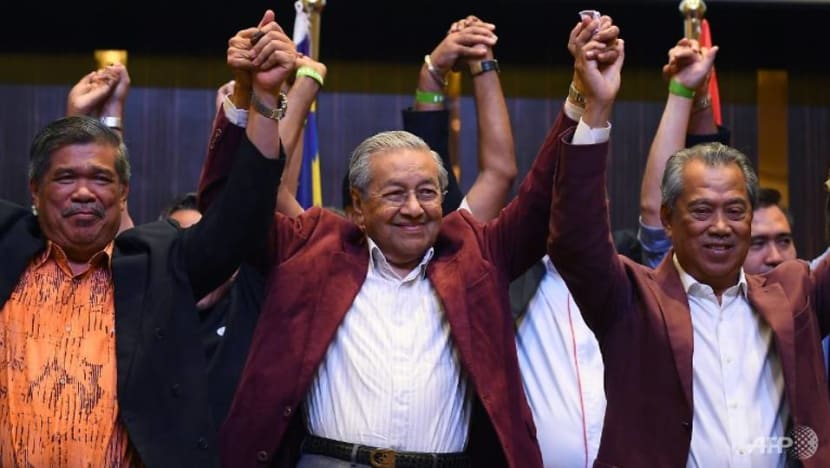
File photo of Malaysian prime minister Mahathir Mohamad celebrating with other leaders of his Pakatan Harapan coalition during a press conference following the 14th general elections in Kuala Lumpur on early May 10, 2018. (Photo: AFP/Manan Vatsyayana)
HOBART: As Malaysians celebrate their first anniversary of regime change, there are many voices disappointed that not much has changed.
The English-speaking urban middle class expecting wholesale political transformation is slowly coming to terms with the reality that fundamental replacement of the political system may not be possible after all.
There is a realisation that it is not possible to go back to the days of “good old Malaysia” of the 1950s and 1960s, where racial and religious tensions were much more benign and high-level corruption was largely absent
SYSTEM BLOCKAGE
To be fair, the new Pakatan Harapan (PH) administration has tried hard in the past year to institute changes to the system. But for every two steps forward, they were forced to take one step back.
The six-decade rule of the previous Barisan Nasional (BN) regime has altered the public administrative system so much that the remnants of the colonial civil service that Malaysians were proud of actually does not exist anymore.
The Malaysian civil service today does not exhibit any of the civil service norms passed down at the time of independence. Truth be told, the Malaysian civil service today is a job bank for the Malay community - over-staffed and heavily influenced by Islamisation.
When the British left, the Malayan civil service was secular, neutral and largely non-political. The previous UMNO regime deliberately politicised the civil service by using racial and political criteria for top civil service positions.
UMNO also introduced Islamic values into the civil service and created an entirely new department, the Department of Islamic Development Malaysia (JAKIM) to institutionalise a formal view of Islam to ensure support from a Malay-Muslim majority. JAKIM’s annual budget is now over a billion ringgit, making it one of the most powerful segments in the civil service.
READ: A month since the electrifying election, a massive clean-up is underway in Malaysia, a commentary
Senior civil servants were expected to organise and lead Islamic rituals and events. As the civil service became more Islamic in character, non-Malays were alienated from leadership positions, fundamentally changing the character of the civil service.
A large part of PH not being able to deliver on its election promises is due to ineptness and meddling by the civil service. Some are still loyal to the previous UMNO regime, passively undermining PH’s programmes.

The civil service is the main delivery system for the PH government but there is a lot of wastage and productivity is low. Everybody knows the civil service in Malaysia is bloated but PH’s attempts to cut down bureaucracy have led to nowhere.
The depth of the challenge facing the PH government in trying to reform the system is colossal.
The best example is the recent finding by an independent human rights commission that the special branch of the police was involved in the disappearance of a Christian pastor Raymond Koh and a Muslim social activist Amri Che Mat back when the BN was still in power.
Concerns that the police have been operating above the rule of law to clamp down on religious activities have been brewing, and it is unclear how much of the rot within the public service the PH can uproot.
NO APPETITE FOR REFORM
On top of this, PH does itself little favours with the incoherent strategies pursued by the four component parties, and now with a vague partnership with Warisan from Sabah thrown into the mix.
There is clearly no appetite for reform in Bersatu, Mahathir’s party, while the reform agenda has grounded to a halt in PKR. Bersatu’s dream was to replace UMNO as the protector of the Malays and they had largely achieved their goal.
READ: Mahathir’s ‘Game of Thrones’ grand plan is almost complete, a commentary
In fact, they had been so successful in politically destroying UMNO that they pushed UMNO into a shotgun marriage with PAS, the Islamic party. Suddenly the UMNO/PAS political marriage has rejuvenated both parties and they are now challenging Bersatu’s claim to represent the Malays.
So Bersatu’s new goal now is to destroy the UMNO/PAS alliance. Otherwise Bersatu will keep losing the crucial Malay vote to the new alliance, which has gained some traction after it successfully won a string of by-elections.
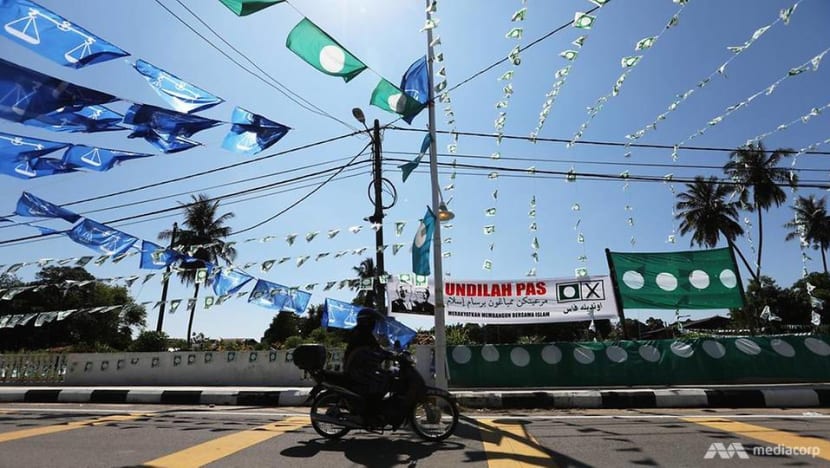
There is no movement in PKR as the party is in a holding pattern until Anwar Ibrahim ascends to the top position in the land. Until then, the party is in no mood to create waves. There is already a schism in the party between the Anwar faction and the Azmin Ali faction and both sides are keeping a low profile now as Malay support for PH is down 30 percentage points from May last year.
This is symptomatic of a larger disappointment with the PH across the country. The government’s approval rating has fallen from 79 per cent last May to 39 per cent in March this year.
READ: The growing opposition assault on the Pakatan government, a commentary
A CATCH-22 SITUATION
The Democratic Action Party (DAP), the most reform-minded party in the coalition, now suddenly finds itself in a catch-22 situation. It does not want to stick its neck out to push for change for fear of being portrayed as the puppet master of PH.
The DAP is in a difficult position. When it comes to the urban Chinese vote, DAP is king. But this also means DAP is stuck in a rut and has no room to expand. Every reform policy it advocates are now instantly branded as “pro-Chinese” and thus “anti-Malay” or “anti-Islam” by the UMNO/PAS brigade.
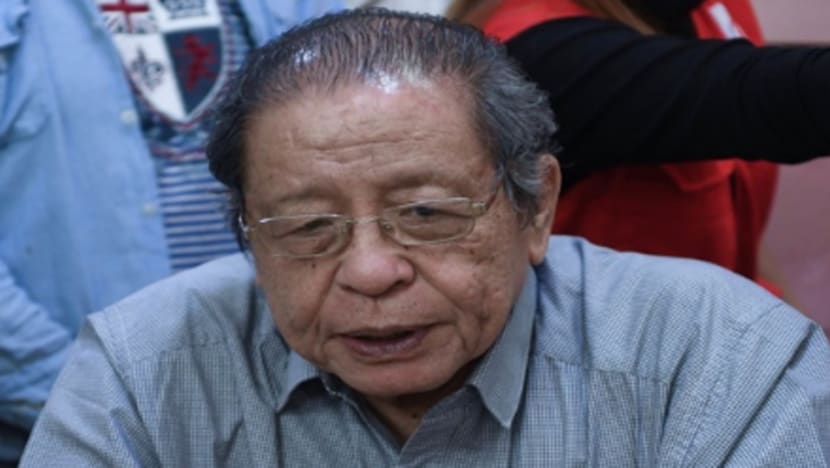
Its position can only go downhill as the percentage of Chinese-majority constituencies has been falling after every delineation exercise. The proportion of Malaysian Chinese is set to drop to below 20 per cent by 2030, with continued emigration and low birth rates.
The DAP is also in a precarious position with the Chinese polity. Its signature promise - recognition of independent Chinese school qualifications and fairer government policies towards the Chinese - are both still in progress. In fact, the reverse may have happened.
When the Malaysian Cabinet decided to increase the number of university places set aside for those that come through a one-year pre-university matriculation places to 40,000 from 25,000 last month, it did not go down well with the Chinese community at all.
Why? Because the quota of 90 per cent for Malay students remained.
To add salt to injury, increasing the number of matriculation places will also reduce the number of university places for those who take the usual high school examination (STPM) route to university, one which most minorities undergo.
What this means is that the divide between the two educational pathways to university for Malays and non-Malays just got wider.
AMANAH HAS LITTLE TRACTION WITH MUSLIM VOTERS
Amanah, the "Islamic" component of PH, is neither here nor there after a year in government. It has not gained any traction among conservative Muslim voters who largely still back PAS.
Amanah’s problem reflects profound changes in Malaysian society. There is a realisation that the “new” Malaysians, especially the Malay population born after the 1980s, are profoundly conservative and their political attitudes have been largely coloured by political Islam.
Scholars have been warning about the uncontrolled expansion of Islamic schools and Islamic curriculum used by government schools for decades, but were not taken seriously.
The Islamisation of Malay society for the past four decades has totally transformed the Malay political landscape. Political Islam is now the only game among the Malay polity.
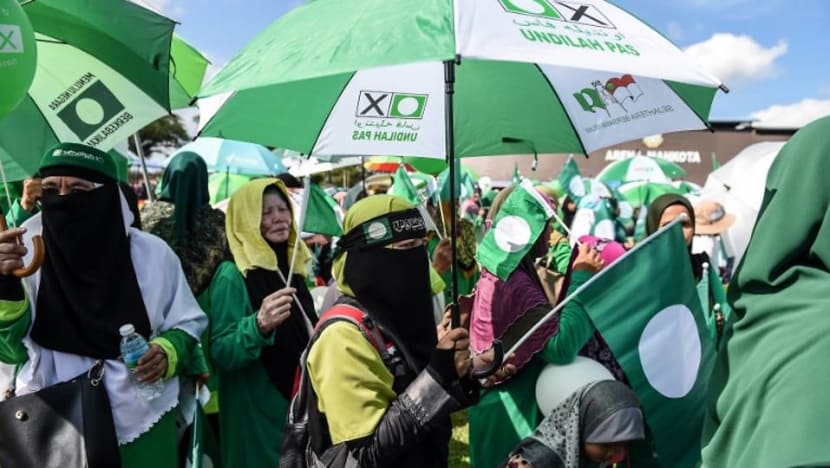
Today, after decades of indoctrination and state-supported Islamisation, there is no political space to even hold a considered discussion about the place of Islam in Malaysian political life. It is taken for granted that Islamic beliefs must be above all other opinions.
Religious figures, who were on the fringe in the 1960s and 1970s, are now mainstream political actors. The mufti of Perlis and Perak are well-known for making pronouncements on every facet of Malaysian life and government policies.
Only Mahathir has the stature to hit back and he has openly called for less time devoted to religion in schools.
READ: Malaysia goes in search of a more inclusive growth formula, a commentary
READING THE TEA LEAVES
So how should one read the first anniversary of regime change?
The right perspective is to simply accept that regime change in Malaysia cannot undo the decades of Islamisation and the politisation of state institutions in a short time span. The civil service is simply not playing ball with the PH administration.
Coupled with no appetite for change, what this means is that political reforms have been painfully slow and may go slower in the coming year.
Mainstream Malaysian political culture has changed completely from the 1970s or 1980s and it is impossible to “go back”. It is also impossible to “go full steam” ahead and bring reforms to the political system to make it more secular and less Islamic.
The unpalatable truth of regime change last year was not to bring back democracy. The Malaysia ship is still sailing in a direction set long ago by the BN.
Social scientists call this path dependency – that political decisions taken decades ago create the reality we see today, and what has occurred in the past persists because of resistance to change. The only difference is that the ship has slowed and the captain is trying to divert it to a new direction.
READ: In Malaysia, where identity politics trumped all for the third time, a commentary
Does this mean we should be negative about regime change and the anniversary? Does this mean there is no hope for the country?
No, it simply means that Malaysians must be realistic about what the change means. Malaysians should celebrate regime change but must understand that real changes or reforms can only take place in the coming years.
In all probability, real political reforms can only take place after the PH wins a second term and they do not have to constantly look over their shoulder.
A second term will also ensure that the PH government can make the sweeping changes to the civil service needed because the civil servants will realise their political masters are in it for the long haul and have no intention of getting booted out in the next election.
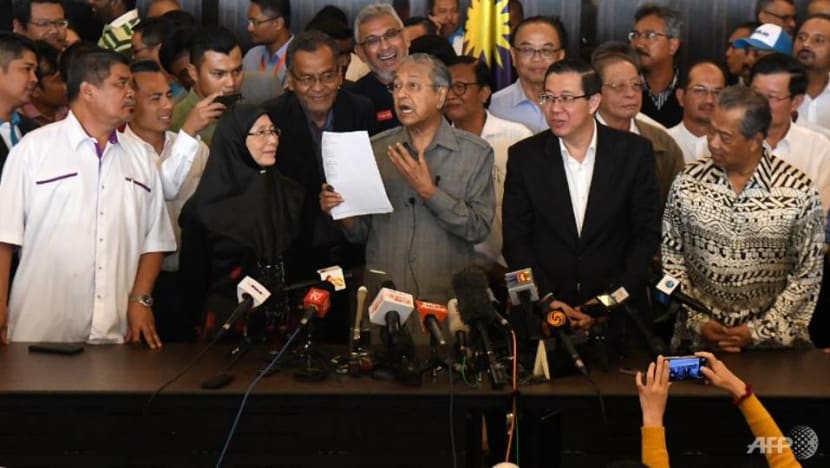
What Malaysians should really celebrate is the overthrowing of a bigoted regime infested with vested interests. The first regime change is always the hardest. But the middle class in Malaysia get distracted and are easily disheartened.
They see the lack of institutional reforms after one year in office as the PH abandoning the reform agenda. But the lack of institutional reforms is more to do with a temporary system blockage.
The hardest part of a first regime change is to maintain the momentum for reforms. If PH does not address needed institutional reforms and changes to the country’s political culture, then there is no hope for Malaysia.
The good news is that the top PH leaders know that deep reforms are crucial and they had better get their reform mojo back on track.
There is no other viable political option. Doing nothing or as little as possible is a sure recipe for defeat in the next polls.
Professor James Chin is Director of the Asia Institute Tasmania at the University of Tasmania and Senior Fellow at the Jeffrey Cheah Institute on Southeast Asia.














